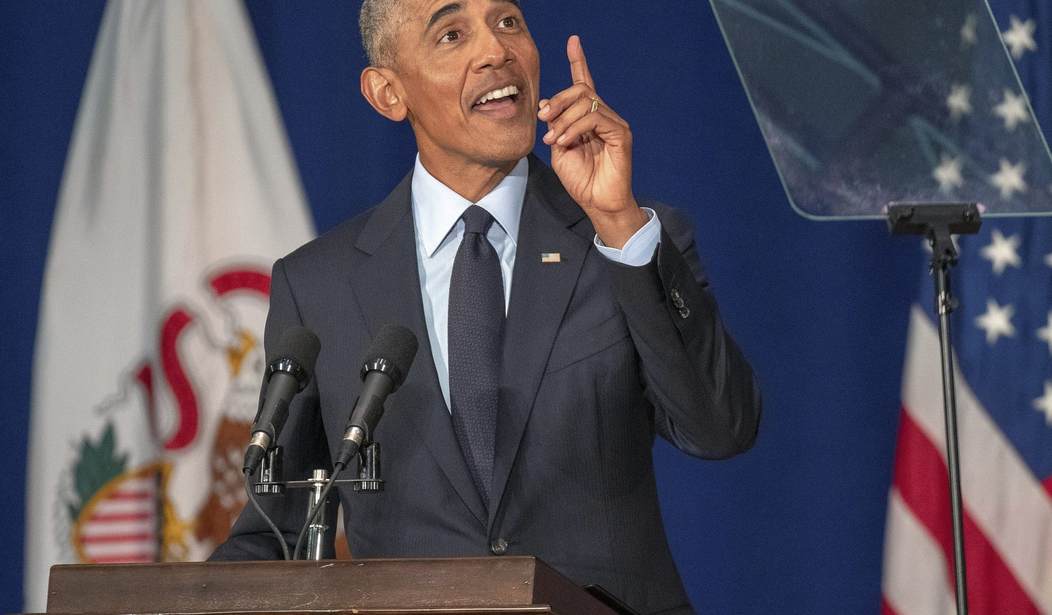My name is Barack, and have I got a deal for you!
“If you like your doctor, you can keep your doctor, period,” President Obama promised during the Obamacare sales pitch to America almost 10 years ago. But as the American people know all too well by now, the gulf between Obamacare’s marketing and reality is vast.
There was “If you like your plan, you can keep your plan,” but that didn’t work out either. The Washington Post’s fact-checkers rated that one the Lie of the Year in 2013. The fallacy behind that falsehood was that Obamacare specified exactly what health care plans would have to cover to satisfy the Obamacare individual and employer mandates.
Millions of Americans lost their health plan when the insurance companies had to cancel them because they were not in compliance with the Obamacare mandates. That problem should have been foreseeable.
Then there was the Obamacare promise that Obamacare would reduce health insurance costs by $2,500 per family per year. In reality, because of all the new regulations, the cost of health insurance soared once Obamacare was fully phased in. This is particularly true for the terribly over-regulated individual health insurance plans that the American people had to buy on their own. The American people had no choice but to buy plans with enormous deductibles of thousands of dollars a year. This made health insurance worthless for most Americans, whose average health costs per year became less than their deductibles.
Finally, there was the Obama promise that if you like your doctor, you can keep your doctor. But the real problem under Obamacare was whether your doctor would want to keep you, under the cost burden Obamacare regulations imposed on doctors. So many Americans lost their doctors when their health insurance was cancelled, or their doctors retired because of the cost of Obamacare regulations.
Now these problems of unintended consequences are threatening Americans’ health insurance again. The federal government is considering new legislation involving costly federal regulations to address the issue of “surprise medical billing.” Surprise billing results when insured Americans suffering a medical emergency are taken to a hospital out of their insurers’ network. The trouble is that when they recover, they have a financial crisis on their hands.
HELP is on the way?
Because the hospital was out of their insurance company’s network, the insurer often refuses to pay for the bill. So, the patient then gets the whole bill, which is beyond what most Americans – most of which cannot afford an out-of-pocket $400 expense – can pay without help from their health insurance. President Trump wants to address this issue. But the Senate Committee on Health Insurance, called the HELP Committee, is not offering effective help. “We’re from the government, and we’re here (not to) help…”
The Committee is considering the Lower Health Costs Act. This would impose price controls on doctors and hospitals, requiring them to accept the average cost that Medicare pays for the health care services received.
As the long history of price controls shows, when the price is held below costs, demand increases. But bureaucrats’ price floors always reduce supply, resulting in shortages of the service. In this case, it will be emergency health care that gets cut. That would not be good for the American people.
The problem of surprise medical billing can be and has been successfully addressed without price controls with the market incentives of arbitration. New York of all places has treated the issue this way.
Arbitrate
Under arbitration, both parties submit an offer to an independent arbiter, and then the arbitrator picks the one that seems most reasonable. Each side has an incentive to put their best foot forward, so they both try to compromise to the extent they can.
Even the hard-nosed New York regulators report that since this process was adopted, they have rarely seen complaints. They notated that, by and large, the problem seems to have been resolved with no hardship imposed on anyone.
Competition, not more of the Obamacare status quo, is the solution to America’s healthcare problems. If liberals in New York can recognize that, so too should Republicans in Congress.
Fellow conservatives: rather than help the left dance one step closer to socialized medicine, let’s move the limited government ball down the field on this issue.









Join the conversation as a VIP Member